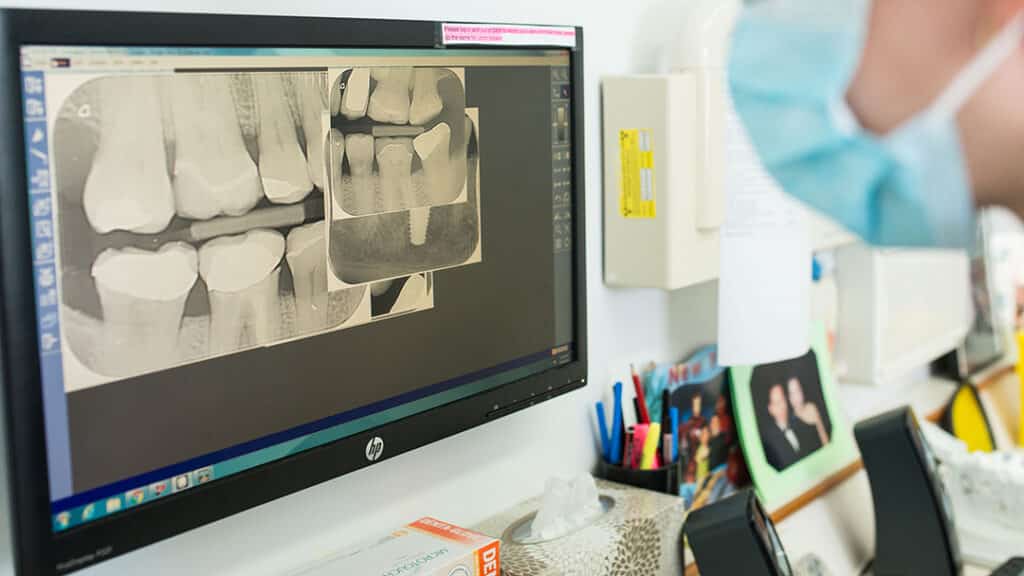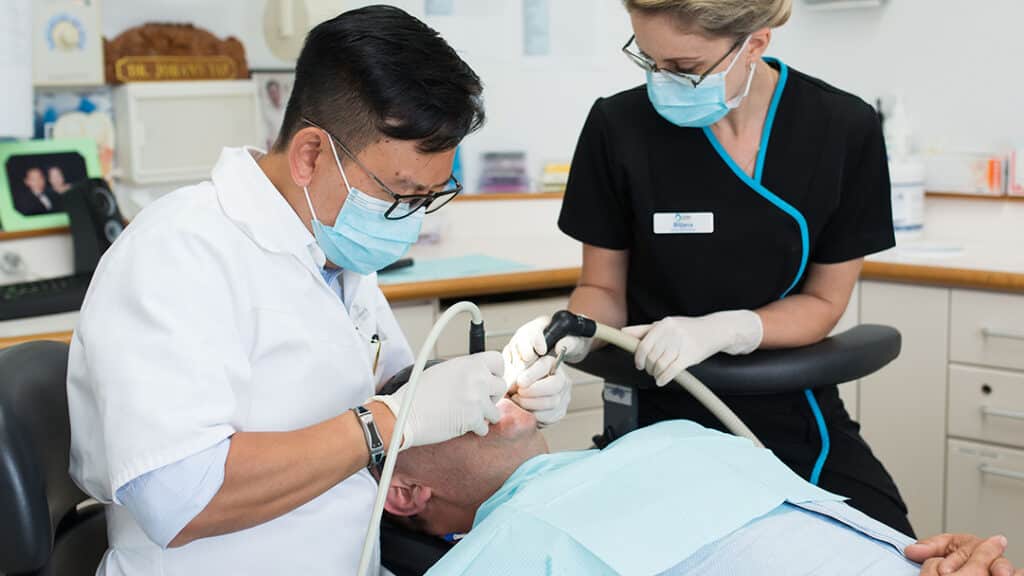
Are Dental Implants Necessary After Tooth Extraction?
Dental Implants
After a tooth extraction, it’s pretty normal to wonder what’s next for your smile. A big question on people’s minds is whether dental implants are the go-to solution post-extraction.
In this blog post, we’re going to unpack this topic for you. We’ll compare dental implants with other options you might be considering for tooth replacement and help you figure out if and when they’re the right choice. We’ll walk you through the upsides and potential hiccups of going the implant route and touch on key bits like who’s a good fit for the procedure and what the recovery looks like. Think of this as your all-in-one guide, giving you the info you need to make smart choices for your oral health.
By the time you’re done reading, you’ll have a clearer picture of how to boost both the health and look of your smile post-tooth extraction.
Are Dental Implants Necessary After Tooth Extraction?
Thinking about getting dental implants after a tooth extraction is a smart move. Let’s break it down a bit.
Tooth extraction is all about getting rid of a tooth that’s causing trouble, be it from decay or damage. After an extraction, dental implants come into the picture. They’re like these nifty metal posts that get fitted into your jawbone, and they act like the roots for your new, artificial teeth.
So, why do folks often consider dental implants after pulling a tooth? Well, both procedures are pretty common, and it’s helpful to understand how they connect, especially if you’re weighing up your options. Extractions are done for a bunch of reasons – think major decay, an injury, or those wisdom teeth causing a fuss. Once the tooth is out, you’re left with a gap. This gap isn’t just a cosmetic issue; it can lead to other teeth shifting, make speaking clearly a bit tricky, and even affect how you chew.
That’s where dental implants come in. They provide a solid base for your new teeth, which means you can say goodbye to those gaps. Not only will your smile look great, but you’ll also find the functionality – like eating and speaking – is much improved.
Weighing Up Your Tooth Replacement Options
Let’s have a yarn about how dental implants stack up against other tooth replacement choices like dentures and bridges. It’s pretty clear that dental implants are a standout for both their durability and how good they look.
Dental implants have shot up in popularity, and for good reason. They’re designed to be a spitting image of your original teeth, bringing back that familiar feeling and look. They fit in so well that it’s like they’ve always been part of your mouth.
Now, dentures are easier on the wallet, but they might not be as reliable in the long run. They can wobble a bit and might give you a bit of grief comfort-wise. Bridges? They’re an option, sure, but they need your neighbouring teeth to play a part. This means altering some of your good teeth to fit them in, which isn’t always ideal.
But here’s a big win for dental implants – they’re champions at keeping your oral health on track. They stimulate your jawbone just like your natural tooth roots did. This is super important because it helps fend off bone loss, a real issue when you’re missing teeth. Without something in there acting like a tooth root, your jawbone can start to lose its mojo, changing how your face looks and possibly stirring up more dental dramas down the track.
Dentures and bridges don’t really come to the party in the same way when it comes to preventing bone loss. Bridges can put extra pressure on the teeth next door, and dentures might slip around a bit, making it tricky to talk.
Figuring Out If Dental Implants Are Right for You
When it comes to deciding if dental implants are a good fit for someone, it’s not just a matter of saying ‘yes’ or ‘no’ on the spot. An implant dentist has a bit of detective work to do first. They’ll have a squiz at your oral health, how solid your jawbone is, and any other health factors that might come into play.
If your jawbone’s a bit on the lean side, don’t stress – stuff like bone grafting can help beef it up, making it ready for implants. It’s crucial to have enough bone there because that gives the implant strength and stability.
Now, if you’ve got certain health conditions or habits, you’ll need to have a good chinwag with your dentist. They’ll run you through what risks might be involved so you can make an informed decision.
The dentist will also take a deep dive into your dental and medical history. They’re interested in things like how old you are, your history of tooth loss, how you go with your oral hygiene, and any overall health issues.
And don’t forget lifestyle factors – they matter too. Your diet and how committed you are to keeping your teeth clean and healthy can influence whether implants are the best route for you.
Getting to Grips with the Dental Implant Process
The journey of dental implant placement isn’t a quick dash – it’s more like a marathon, typically stretching over several months. Let’s unpack it step by step.
- Initial Surgery: This is where the action starts. An oral surgeon gets busy by placing the dental implant right into your jawbone. It’s a precise job and sets the foundation for everything that follows.
- Healing Period: After the surgical procedure, your body needs time to do its thing. This period is all about bone growth and healing snugly around the implant. It’s a bit like waiting for a seed to sprout and grow.
- Timeline: The time between tooth extraction and when you get your implant can vary. It depends on how your body heals and the state of your jawbone. Sometimes, you might get an implant almost straight after your tooth extraction surgery, while other times, you might have to wait a few months after extraction. It’s not one-size-fits-all.
- Types of Implants: There’s more than one kind of implant – it’s not just a single model. You’ve got options like single-tooth implants, each designed for different scenarios. Maybe you’ve lost one tooth, or maybe a few – your choice will hinge on things like where the gap is, how many teeth are missing, and what you personally prefer.
- Post-Surgery Care: After the dental procedure, it’s normal to have some swelling and a bit of discomfort. But with proper care and maybe some meds, these usually settle down. Keeping on top of your care post-op is key to sidestepping any common complications.
Getting your head around each phase of the dental implant procedure is vital. It helps you know what to expect so you can make decisions that are right for your dental health. Remember, an experienced dentist is your best mate in this process, guiding you every step of the way.
Schedule Your Dental Implant Treatment with Odin House Dental Surgery
At Odin House Dental Surgery, your comfort and well-being are at the heart of everything we do, especially when it comes to dental implants. Our dental team isn’t just focused on the technical stuff; we’re all about getting to know you and your smile. We tailor our dental implant solutions to fit your needs perfectly, ensuring that your smile looks and feels great.
We take a unique, personal approach to dental implants. It’s not just a common treatment for us – it’s about understanding your individual story and needs. At Odin House, we believe that every smile has its own story, and we’re here to make yours one of health, confidence, and happiness.
Keen to learn more about how we can transform your smile? Give us a ring at (08) 9468 7182. Let’s chat about how our dental implant solutions can be part of your journey to a brighter smile. Whether it’s a same-day procedure or a more complex treatment plan, we’re here to guide you every step of the way.


